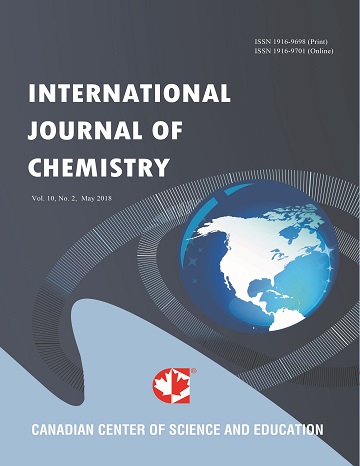Characterization of Tris (5-amino-1,10-phenanthroline) Ruthenium(II/III) Polymer Films Using Cyclic Voltammetry and Rutherford Backscattering Spectrometry
- Kenneth Brown
- Xisen Hou
- Olajide Banks
- Kevin A. Krueger
- Julian Hinson
- Graham F. Peaslee
- Paul A. DeYoung
- Shannon M. Alger
- Jessica Benzer
- Thomas L. Neils
Abstract
Platinum electrodes were chemically modified with tris(5-amino-1,10-phenanthroline) ruthenium(II) via electropolymerization. The characterization of the thin films was accomplished with cyclic voltammetry (CV) and Rutherford Backscattering Spectrometry (RBS). Data indicates a strong correlation between the peak currents from the characterization cyclic voltammograms and the number of cycles of electropoly-merization. Rutherford Backscattering Spectrometry showed the same trend, and verified that film thickness is strongly dependent on the concentration of the monomer ruthenium solution. Film thickness was determined from the change in ion beam energy as it passed through the film and was calculated to be 1.0 x 1018 atoms/cm2 – 3.4 x 1018 atoms/cm2, depending upon the number of electropolymerization cycles. The electrodes also showed differences in surface roughness, which were dependent on film thickness.
- Full Text:
 PDF
PDF
- DOI:10.5539/ijc.v3n4p12
Index
Contact
- Albert JohnEditorial Assistant
- ijc@ccsenet.org
